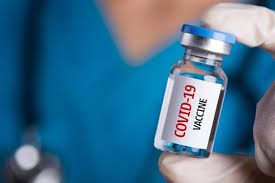South African President Cyril Ramaphosa on Monday said that the waiving of intellectual property rights in the manufacturing of coronavirus drugs was needed to enable the rest of the world to respond to an unprecedented world medical problem in an equal measure.
Speaking in his weekly message to the nation, Ramaphosa said that the World Trade Organisation (WTO) should consider South Africa’s and India’s proposal for a temporary waiver of certain aspects of Trade-Related Aspects of Intellectual Property Rights (TRIPS).
Since the proposal was made by South Africa and India, some 100 countries – including the United States – have backed the proposal in that it was worth looking into with the Covid-19 vaccines’ manufacturers from Europe, US, China and Russia.
Currently, 55 percent of the existing vaccine manufacturing capacity is located in East Asia; 40 percent in Europe and North America; and less than 5 percent in Africa and South America.
The president admitted that the enforcement of intellectual property rights was critical to research and development and innovation in the quest for human progress.
“But our position as South Africa is that such a waiver is necessary at this time. It is temporary and is in direct response to an emergency,” Ramaphosa said.
He added: “This is an unprecedented situation. It requires that all intellectual property, knowledge, technology and data related to Covid-19 health technologies be put at the disposal of all – and not just to the highest bidders.”
According to the president, “a situation in which the populations of advanced, rich countries are safely inoculated while millions in poorer countries die in the queue, would be tantamount to vaccine apartheid.”
He said: “It will set a devastating precedent in our quest to realise a more egalitarian world and our ability to handle future pandemics.
“Social responsibility for health is a recognised principle in the Universal Declaration of Bioethics and Human Rights adopted by the international community in 2005.
“It (the principle) affirms that progress in science and technology must contribute to justice, equity and the interests of broader humanity.
“It notes that the benefits of scientific research should be shared with society as a whole and within the international community, in particular with developing countries that face resource constraints,” Ramaphosa said.
If the international community was truly committed to human rights and the values of equality and non-discrimination, vaccines should be viewed as a global public good, he added.
NM/as/APA


